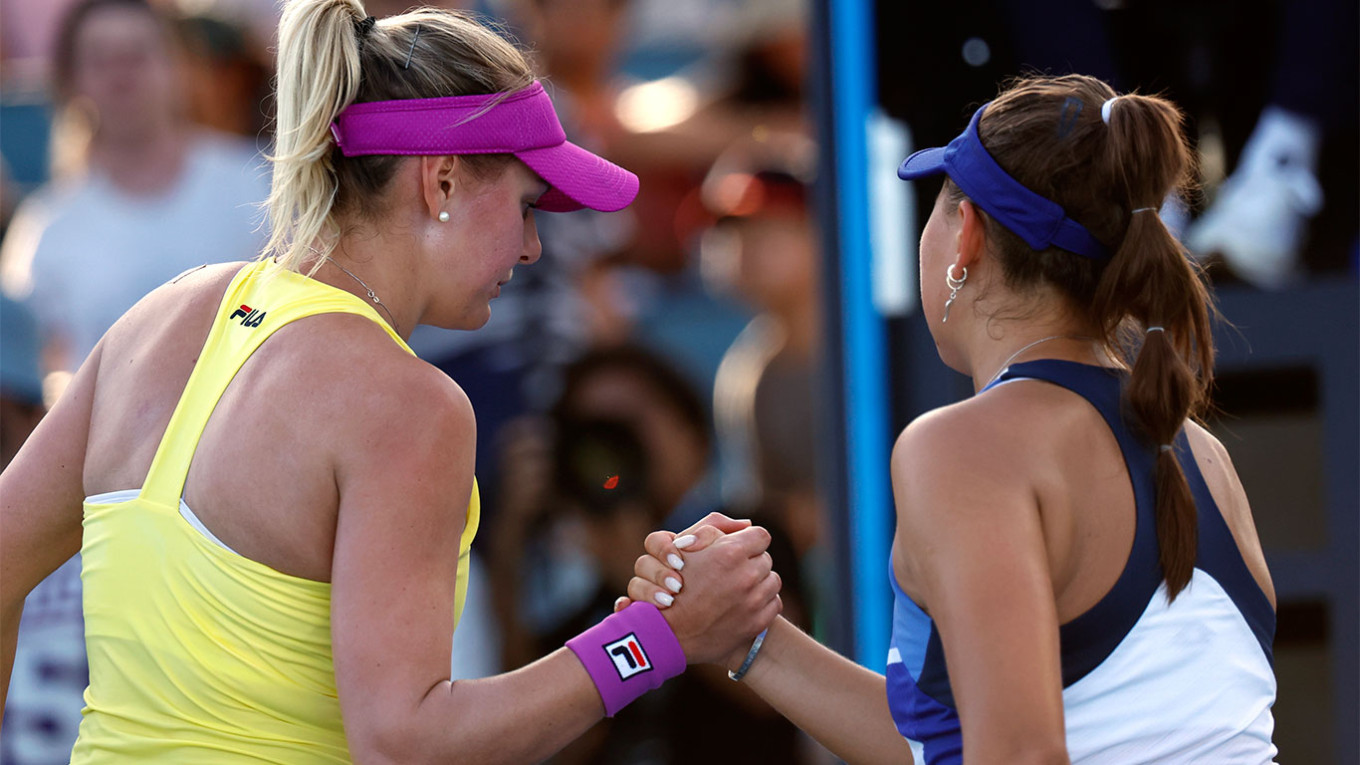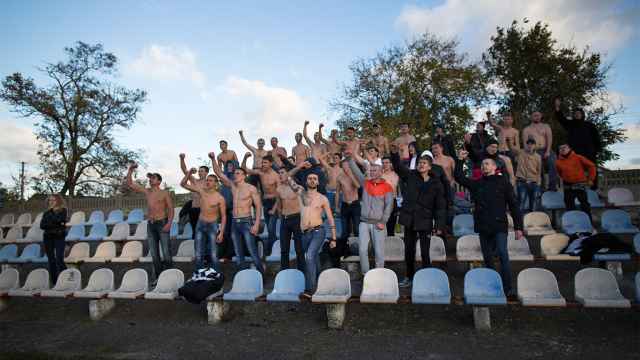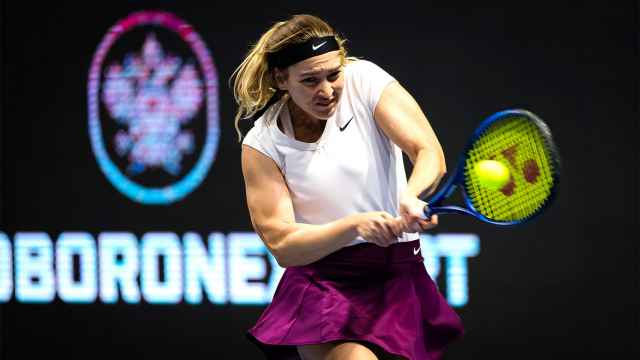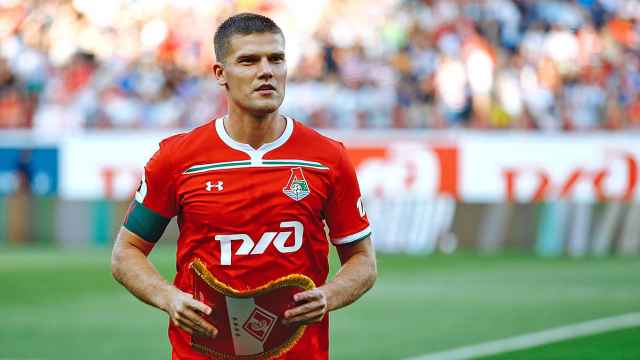Tennis Australia on Tuesday banned Russian and Belarusian flags at the Australian Open after Ukraine's ambassador demanded action when they were seen among the crowd.
Moscow called the ban an "unacceptable politicization of sports."
The red, white and blue stripes of Russia were held up by fans during Monday's first-round clash between Ukraine's Kateryna Baindl and Russia's Kamilla Rakhimova on day one.
Ukrainian fans reportedly called security and police to the stands.
A Russian flag was also unfurled on Rod Laver Arena during Daniil Medvedev's clash with American Marcos Giron.
"Flags from Russia and Belarus are banned onsite at the Australian Open," Tennis Australia said in a statement.
"Our initial policy was that fans could bring them in but could not use them to cause disruption. Yesterday, we had an incident where a flag was placed courtside.
"The ban is effective immediately. We will continue to work with the players and our fans to ensure the best possible environment to enjoy the tennis."
Since Russia's invasion of Ukraine, Russian and Belarusian players have normally competed under a neutral white flag as independents, as is the case at the Australian Open.
Ukraine's ambassador to Australia and New Zealand, Vasyl Myroshnychenko, had late Monday called on Tennis Australia to take action.
"I strongly condemn the public display of the Russian flag during the game of the Ukrainian tennis player Kateryna Baindl at the Australian Open," he tweeted.
"I call on Tennis Australia to immediately enforce its 'neutral flag' policy."
The diplomat last week urged the Australian Open to ban Russian and Belarusian players entirely, the latter due to Belarus's support of Vladimir Putin.
Wimbledon went down that route last year, barring players from both countries, leading to the tournament being stripped of its ranking points by the ATP and WTA.
Prior to the flag ban, former Australian ambassador to Ukraine, Doug Trappett, who served in the role from 2015 to 2016, slammed Australian Open organizers.
Writing on Twitter, he called it "embarrassing."
"You could have banned Russian players and positioned yourself to give a robust response to such predictable incidents but you chose spinelessness," he tweeted.
'Intimidation'
Russia's Embassy in Australia hit back at the ban, calling it "another example of unacceptable politicization of sports."
"On top of already discriminating against Russian tennis players with its 'neutral flag' policy, Tennis Australia now went further by making sure they can not be visibly supported by their fans," it said in a statement.
"It is indeed regrettable to see the tournament organizers give in to overt and rather arrogant political manipulation sacrificing the spirit of fair play once inherent to the Australian Open."
Baindl won her match 7-5, 6-7, (8/10), 6-1 and will face American Caty McNally in the second round.
Ukrainian-Australian fan Maria Tumarkin told the Melbourne Age newspaper she was the one who called security, claiming Russian fans were heckling Baindl.
"This is profoundly unsafe, the war is ongoing," she said. "It's a small court, the guys were extremely close to the players, so there was an element of what I felt was intimidation."
Belarusian world number five Aryna Sabalenka said she had no objection to the flag ban "if everyone feels better this way."
But she also believes that sport "is nothing to do with politics."
"I have zero control on it. What can I say? They did it, okay, no flags," added Sabalenka, among the players affected by the Wimbledon ban last year.
Asked if she could understand how some Ukrainian fans could be upset by seeing Russian or Belarusian flags, she replied: "I'm pretty sure they (are) upset about that, and, if Tennis Australia made this decision to make them feel better, okay."
A Message from The Moscow Times:
Dear readers,
We are facing unprecedented challenges. Russia's Prosecutor General's Office has designated The Moscow Times as an "undesirable" organization, criminalizing our work and putting our staff at risk of prosecution. This follows our earlier unjust labeling as a "foreign agent."
These actions are direct attempts to silence independent journalism in Russia. The authorities claim our work "discredits the decisions of the Russian leadership." We see things differently: we strive to provide accurate, unbiased reporting on Russia.
We, the journalists of The Moscow Times, refuse to be silenced. But to continue our work, we need your help.
Your support, no matter how small, makes a world of difference. If you can, please support us monthly starting from just $2. It's quick to set up, and every contribution makes a significant impact.
By supporting The Moscow Times, you're defending open, independent journalism in the face of repression. Thank you for standing with us.
Remind me later.






